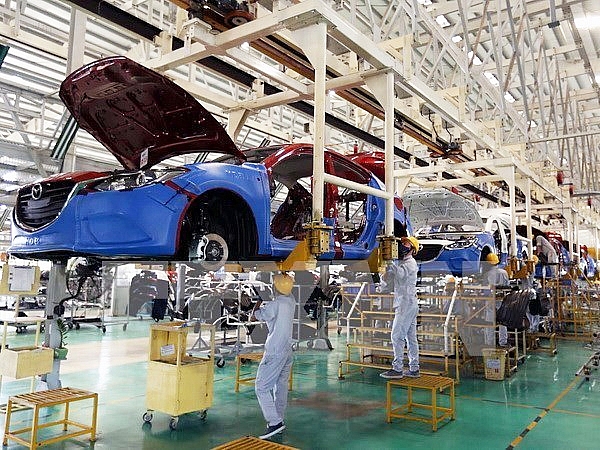EVFTA makes Vietnam more attractive to EU investors: German media
 |
| Illustrative photo (Photo: VNA) |
In a story posted on its website, DW said the trade agreement would be the most ambitious the EU has ever negotiated with a developing country, which abolishes 99 percent of customs duties, eliminates bureaucratic hurdles by aligning standards for goods like cars and medicine, and ensures easier market access for both European and Vietnamese companies.
On January 21, the EU Parliament’s International Trade Committee (INTA) will present a draft resolution of the EVFTA. If the European Parliament accepts the resolution during its plenary session in February, the EVFTA will come into force one month later.
The trade deal is a positive step for the economies of both Vietnam and the EU, DW quoted Vietnamese Ambassador to Germany Nguyen Minh Vu as saying.
In the context of trade tensions and rising protectionism, the EVFTA provides a strong signal of support from both sides for globalisation and unwavering commitments to a free and rules-based trade system, he said.
The Vietnamese diplomat also believed that the pact will significantly deepen the strategic partnership between Vietnam and EU economically and politically.
Vietnam’s economy has grown by an average 6.5 percent in the last five years, and foreign direct investment has played a large part in this. The EVFTA is expected to serve as a boon for Vietnam to lure more foreign investment in the time ahead.
Currently, the EU is Vietnam’s 5th biggest foreign investors. It is reasonable to hope that the figure will increase significantly, Ambassador Vu said, adding 62 percent of investors from the EU have a positive opinion of doing business in the Southeast Asian country.
Meanwhile, Erwin Schweisshelm, former head of the Friedrich-Ebert Foundation in Vietnam said that the EVFTA is part of the EU’s wider economic strategy in Southeast Asia. The EVFTA would be the EU's second free trade agreement with a member of the Association of Southeast Asian Nations (ASEAN), a bloc with ten members and a population of 600 million people. In November 2019, the EU-Singapore free trade agreement entered into force.
“In long term, there could be an ASEAN-EU agreement”, he said.
The article also said that Vietnam has already ratified six of eight International Labour Organisation (ILO) standards, and commended the country’s adoption of revised Labour Code in November 2019 , allowing the creation of independent trade unions at the enterprise level that do not have to join the Vietnam trade union.
What the stars mean:
★ Poor ★ ★ Promising ★★★ Good ★★★★ Very good ★★★★★ Exceptional
 Tag:
Tag:
Themes: EVFTA & EVIPA
Related Contents
Latest News
More News
- The generics industry: unlocking new growth drivers (February 04, 2026 | 17:39)
- Vietnam ready to increase purchases of US goods (February 04, 2026 | 15:55)
- Steel industry faces challenges in 2026 (February 03, 2026 | 17:20)
- State corporations poised to drive 2026 growth (February 03, 2026 | 13:58)
- Why high-tech talent will define Vietnam’s growth (February 02, 2026 | 10:47)
- FMCG resilience amid varying storms (February 02, 2026 | 10:00)
- Customs reforms strengthen business confidence, support trade growth (February 01, 2026 | 08:20)
- Vietnam and US to launch sixth trade negotiation round (January 30, 2026 | 15:19)
- Digital publishing emerges as key growth driver in Vietnam (January 30, 2026 | 10:59)
- EVN signs key contract for Tri An hydropower expansion (January 30, 2026 | 10:57)





















 Mobile Version
Mobile Version